For example, I have a list (it can also be a numpy.array or anything else, I just wonder a faster way and I don't care the data type) ['a','b','c','d'], and I want to get ['ab','bc','cd'].
Of course there's a simple solution such as:
letters = list('abcdefghijk')
my_list = [letters[i:i+2] for i in range(len(letters)-1)]
And the my_list is :
[['a', 'b'],
['b', 'c'],
['c', 'd'],
['d', 'e'],
['e', 'f'],
['f', 'g'],
['g', 'h'],
['h', 'i'],
['i', 'j'],
['j', 'k']]
But I wonder is there any faster way to do this through numpy or something else, since I want to do this with a relatively big data, and therefore a simple for loop may be costly.
UPDATE Let me sumarrize the answers below now. Very much thanks to the answers so far from @Ehsan and @Andy L. I've done a very simple test of all their solutions with a relatively bigger data through the codes below:
import time
import numpy as np
from numba import njit
import matplotlib.pyplot as plt
from numpy.lib.stride_tricks import as_strided
def m1(letters):
return [letters[i]+letters[i+1] for i in range(len(letters)-1)]
@njit
def m2(letters):
return [letters[i]+letters[i+1] for i in range(len(letters)-1)]
def m3(letters):
return np.char.add(letters[:-1], letters[1:])
def m4(letters):
n = len(letters) - 1
m = np.array(letters[0]).itemsize
arr = as_strided(letters, shape=(n, 2), strides=(m, m))
return arr
def test_time(testfunc,args):
start = time.time()
testfunc(*args)
return time.time() - start
# test
ns = [10000, 100000, 1000000, 10000000]
timecost = []
for n in ns:
input_=np.random.choice(list('abcdefghijklmnopqrstuvwxyz'), size=n)
cost = [test_time(testfunc, [input_]) for testfunc in [m1, m2, m3,m4]]
timecost.append(cost)
# result plot
timecost = np.array(timecost)
labels = ['normal','numba.njit','numpy.char.add','numpy.lib.stride_tricks.as_strided']
for i in range(timecost.shape[-1]):
plt.plot(ns, timecost[:, i], label=labels[i])
plt.legend()
plt.savefig('result.png')
The result shows that with np.char.add and numba, the performance does work better than the normal method on bigger data, but the performance of stride_tricks is even better: the time cost decreases more than two orders of magnitudes.

